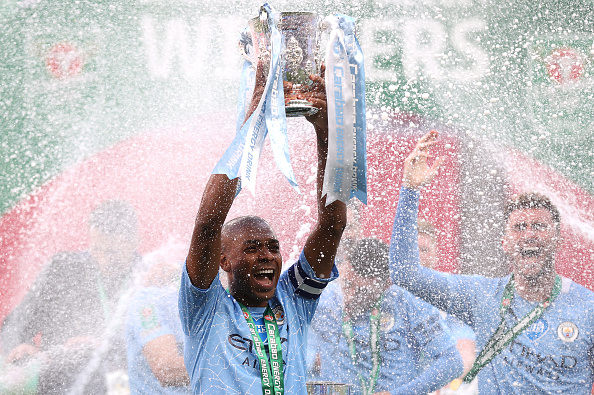Carabao Cup has enough fizz to make business sense despite what its critics say

The Carabao Cup, which concludes on Sunday when Chelsea play Liverpool at Wembley, is perennially fending off calls for its demise and remains the butt of many a joke.
Its future beyond 2024 remains uncertain, when an expanded Champions League is set to tighten the squeeze on English football’s secondary domestic cup competition.
And it is only five years since it went unclaimed by a title sponsor, until its current partner Thai energy drink brand Carabao took up the rights in a deal worth £6m a year.
Yet its regular denigration is at odds with the illustrious list of recent winners: Manchester City have won six of the last eight, with Chelsea and Manchester United the others.
It is also of major importance to teams lower down the food chain, with the £90m it generates annually helping to make it the biggest financial contributor to clubs outside the top flight.
“It’s important not to conflate the importance of a competition to a sport with the value ascribed to it by commercial partners,” said Neil Hopkins, global head of strategy at M&C Saatchi Sport and Entertainment.
“The League Cup didn’t have a sponsor at all during the 2016-17 season but that was arguably smack in the middle of its re-emergence as a tournament that clubs really value.”
“It’s nearly a decade since the last club outside the top six triumphed. In an age where the Big Six may be becoming a Big Three, any silverware is important.”
Matthew Fletcher-Jones, a director at agency Cake, agrees that the competition “still matters”.
“Fans and pundits can be negative about the Carabao Cup, but after more than 60 years the competition still offers value to partners and the clubs themselves,” he said.
“It allows for engagement and marketing opportunities with all 92 clubs and a showpiece Wembley final, broadcast globally, with a European place on offer.
“In recent years it’s been sponsored by big traditional home brands and international businesses trying to break the UK market.
“You can’t argue with season-long regional reach across the whole of England and south Wales, culminating in a final usually contested by two of the biggest clubs in the world – with football fans across the globe watching.”
Carabao renewed its deal last year until 2024, after which all bets are off. Holding the final well before the season reaches its climax and the proliferation of reserve players turning out for bigger clubs in earlier rounds, meanwhile, take off some sheen for sponsors.
“Come the final though, Wembley will be full and the teams will be at full strength,” said Hopkins. “In commercial terms, all the ingredients are there so perhaps the concept is being a little undersold?”
